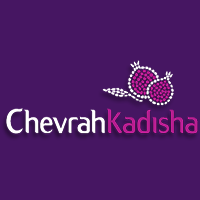
Parshot/Festivals

Zayin Adar – a special day dedicated to a holy mitzvah
RABBI JONATHAN FOX
CHEVRAH KADISHA
On this day, which is known as Zayin Adar, the men and women of the Chevrah Kadisha fast and repent as they recognise the great responsibility that they have in performing the holy mitzvah of burial.
It was Moshe himself who taught by example the importance of ensuring the honourable burial of the departed. When the Jewish people left Egypt, all the Jews were busy gathering the riches from the Egyptians. All except for Moshe, who was occupied with searching for the hidden coffin of Yosef in order to transport it to the Land of Israel for burial.
Moshe sacrificed the opportunity for great wealth in order to ensure that Yosef would receive the burial he deserved. The Gemara tells us that as a reward for this mitzvah, Moshe was honoured by ultimately being buried by Hashem Himself in the valley in the plains of Moav.
The people of the Chevrah Kadisha, many of whom are volunteers, follow the example of Moshe. With tremendous selflessness, they ensure that all the needs of the departed are taken care of with respect and sensitivity. This includes collection of the body, arranging the funeral, washing of the body, purifying the body with water (taharah), dressing the body in shrouds and the burial itself.
Immediately after the fast, the Chevrah Kadisha volunteers and workers are treated to a dinner and are thanked by representatives of the community for their holy work.
If members of the community would like to send a message of thanks to the people of the Chevrah Kadisha who are involved in the mitzvah of burial, please e-mail rabbij@jhbchev.co.za. We will try to convey your message at the dinner.
On most Jewish calendars the 7th of Adar is not highlighted as a special holiday. However, as the yahrtzeit of Moshe Rabbeinu, it is a very significant date for us.
A yahrtzeit is the anniversary of a person’s passing from this world to the spiritual world and is commemorated by the surviving relatives of the departed. Since Moshe was the beloved teacher of all Jews, we all commemorate his passing on this date.
It is interesting to consider why, in particular, the yahrtzeit of Moshe Rabbeinu was chosen. The simple answer is that we do not know the precise date on which the forefathers passed away. The Talmud does tell us the date of Moshe’s passing.
A personal yahrtzeit is a time to reflect on the ways that your loved one impacted positively on your life and to commit to making a renewed effort to live a more spiritual, moral, and more giving life.
If you have been considering adding a little more Judaism to your life, yahrtzeit is an appropriate time to make such a commitment. Any element of personal growth that one undertakes in connection to the passing of a parent or relative, makes an eternal difference for that relative’s soul.
It could be said that Moshe was the first Chevrah Kadisha. He set an example for future generations as to the importance of dealing with the burial needs of the deceased.
Here are some of the practices that are observed on a yahrtzeit:
- The son of the deceased recites Mourners’ Kaddish during the prayer services
- One should try to visit the grave of one’s parent
- It is praiseworthy to give charity for the elevation of the soul of the deceased
- Some people fast
- It is customary to study mishnayot for the elevation of the soul of the deceased
There are other commendable practices that apply on a yahrtzeit for one’s parent, including:
- leading the prayer services
- receiving an aliyah on the Shabbat before the yahrtzeit
- leading the maariv service on the motzei Shabbat before the yahrtzeit
- being called up for maftir on the Shabbat before the yahrtzeit
Lighting a candle
A yahrtzeit candle is lit by the relatives of the deceased at the start of the yahrtzeit and is left burning for the entire 24-hour day. One should not extinguish this candle even if it exceeds 24 hours. On the yahrtzeit, the soul of the deceased visits the world and derives spiritual pleasure from the lit candle
Making an azkarah
If the yahrtzeit falls on a day on which the Torah is read, an azkarah (memorial prayer) is recited in shul in honour of the deceased. If the yahrtzeit falls upon a day in which the Torah is not read, an azkarah is recited in shul on the nearest preceding day in which the Torah is read.
A day of gratitude
One day per year – the 7th of Adar – we get an opportunity to thank the people of the Chevrah Kadisha for the great kindness that they do for our community by taking care of all the burial needs of the deceased.
On March 9, the men and women of the Chevrah Kadisha fast and repent as they recognise the great responsibility that they have in upholding Kavod Hameit throughout the year.




